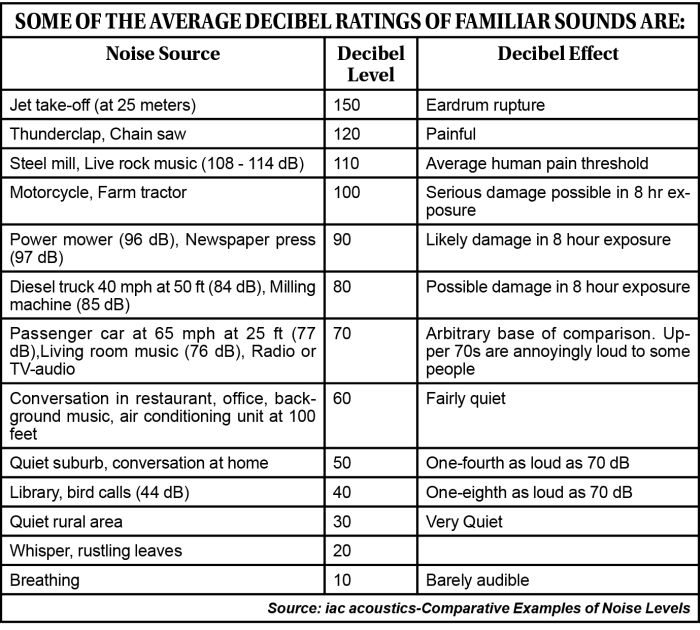Dr Voto Swuro (Ms ENT)
Junior Consultant, Department of ENT, CIHSR
Hearing loss and deafness are common that it can be found in any region or country. According to the WHO World Report on Hearing, it was estimated that one out of four people would have hearing loss by 2050 and that there is a need to highlight the importance of prevention to reduce hearing loss risk and prevalence. Every year on March 3rd, World Hearing Day is commemorated. It is an event organised by the World Health Organization. This year’s theme is “To hear for life, listen with care” it focuses on the importance and means of hearing loss prevention through safe listening.
Many people these days are at risk of hearing loss as a result of the widespread practice of working in a noisy place, listening to audio overhead/earphones, video gaming with headphones and visiting places with amplified music e.g. nightclub, concert or fitness classes regularly and for a longer duration. Noise-induced hearing loss is irreversible, but it is also fully preventable. But if it remains unaddressed, it can negatively impact many aspects of our life, our day to day communication, the development of language and speech in children, cognition, education, and interpersonal relationships.

What is Noise? We all know about air pollution and water pollution but are we aware of noise pollution? Noise is also a pollutant and it is known to be dangerous to health. It can affect both our physical and psychological state. When it affects our physical state it can damage our ears, especially the sensory cells in our ears. Ears are the organs that process sounds, enabling the brain to interpret what we are hearing. Sensory cells within our ears help us to listen. Our sensory cells can only take so much daily noise before they become destroyed. Listening to loud sounds over long periods can cause damage which can result in temporary or permanent hearing loss or a ringing sensation in the ear (tinnitus). It can also lead to heart problems, fast breathing, stomach ulcers, high cholesterol and can also affect unborn babies. When it affects the psychological status a person may feel annoyed, irritated and quick to temper, he/she may have difficulty in concentrating and being efficient in work, sleeping and emotional problems could also arise. It may also significantly impact the families and communication partners of those living with hearing loss.
Measurement of noise
As the weight is measured in grams or kg the sound is also measured in units called decibel (dB). Noise is also measured in dB. This measure takes into account the way the human ear responds to sound. When you visit an audiologist, they would usually measure your hearing level in dB and according to that, the diagnosis is made. A person is said to have normal hearing if his or her hearing thresholds are 20dB or better in both ears. Hearing loss is when the person is not able to hear, as well as, someone with normal hearing. It can affect one or both the ears and can be mild, moderate, moderately severe, severe, or profound. When we are exposed to loud sounds i.e. sound intensity greater than 80 dB, heard for more than 40 hours a week, it can cause hearing loss by damaging the sensory cells in our ears.
Noise and Hearing loss:
Hearing loss due to excessive or prolonged exposure to noise is known as noise-induced hearing loss (NIHL). This type of hearing loss is acquired gradually. The person is usually unaware until a hearing test is done and especially if only one of the ears is affected. But continued listening at unsafe levels will lead to irreversible hearing loss. Another cause of NIHL could be an extremely loud burst of sounds such as gunshots or explosions which can rupture the eardrum or damage the bones in the Middle ear. This kind of NIHL can be immediate or permanent. Therefore, it is important to be alert to early warning signs of hearing loss:
• You have pain or ringing/whistling/bussing sound in the ears (tinnitus).
• You have difficulty in hearing high-pitched sounds that is birds singing, doorbells, telephones, alarm clocks.
• You have difficulty in understanding speech, especially over the telephone and reporting of speech not being clear
• You can’t hear someone more than 2 feet away and need constant repetitions
• Difficulty following conversations in noisy environments, such as in restaurants, markets or at social gatherings.
Noise-induced hearing loss can also be prevented by adopting safe listening strategies. The term "safe listening" simply refers to a listening style that does not endanger our hearing. Some of the Safe listening behaviours are:
1. We should know which noises can cause damage to our ears and are hazardous.
2. We should always keep our device volume levels to no more than 60% of maximum and use a well-fitted noise cancelling headphones.
3. We should wear earplugs, earmuffs or other protective devices while in a noisy environment. If we are not able to reduce or protect ourselves from the noise, we should move away from the source of noise.
4. We should limit the time spent engaging in noisy activities, and in a noisy area take regular breaks in a quiet area and limit the daily usage of personal audio device.
5. We should monitor our listening levels, that is by using apps to monitor our sound exposure and choosing devices with well built-in safe listening features.
6. We should protect the ear of children who are too young to protect their own.
7. We should make our family, friends and colleagues aware of the hazards of noise.
8. We should have our ear and hearing tested at least once in a year or if you think you might have some hearing loss by an ENT and an Audiologist.
Lastly, early detection and intervention can help to alleviate many of the negative effects of hearing loss. For young children and their families, these include specialised education programmes and sign language teaching. Assistive technologies, including hearing aids, cochlear implants, closed captioning, and other devices can also help people with hearing loss of any age. Speech therapy, aural rehabilitation, and other associated therapies may also be beneficial.





